Modern consumers expect a lot. They want fast service with personalized attention and 24/7 availability. With more channels than ever to connect on, keeping up feels impossible. How can businesses provide an amazing, tailored experience to every single customer at scale?
It’s possible with the help of Customer relationship management (CRM). It gives your business everything it needs to deliver exceptional customer service.
It combines sales info, marketing data, and service interactions for a single view of each customer. You can track relationships, gain insights, and provide customized experiences across channels.
However, CRM can sound vague and intimidating from the outside. This guide will demystify what it is and how it works. You'll learn what capabilities CRM offers, how it benefits your business, and tips for choosing the right solution.
What Is CRM?
What exactly is a CRM? The acronym stands for Customer Relationship Management. It is a software, like HubSpot or Salesforce, that helps businesses track and strengthen connections with all their customers and leads.
The CRM software brings together data from across your company — sales, marketing, customer service, billing — you name it. All this information gets consolidated into unified customer profiles.
With this handy, centralized customer database, CRM software also gives you tools to do all sorts of helpful stuff. You can:
- Look up a customer's complete history of purchases, emails, service calls, etc.
- Get reminders to follow up on leads and opportunities
- Automate marketing emails and other outreach
- Generate reports to analyze performance
- Share real-time customer details with your team
In a nutshell, CRM software helps you organize customer data, surface insights, and coordinate engagement across your business to strengthen relationships.
3 Types of CRM
There are three main types of CRM systems companies can choose from. The right CRM depends on your business needs and goals. The main types include:
1. Operational CRM
This type streamlines and automates the main processes that keep your business running — marketing, sales, and customer service. Here’s how:
- Marketing Automation: It automates tedious tasks like sending emails, tracking campaign results, managing content offers, and more. It saves marketers time while optimizing outreach.
- Sales Automation: On the sales side, it lets the reps focus on selling, not admin work. The CRM automates lead follow-ups, meeting scheduling, call logging, and other repetitive steps in the sales workflow.
- Service Automation: For customer service, CRM introduces frameworks like ticketing systems to simplify request management and email tools to unify customer communications. The goal is stellar customer experiences.
The core benefit is using technology to handle repetitive administrative tasks so your teams can focus on higher-value work, like engaging with leads and customers.
Operational CRM is perfect for businesses with linear sales processes, especially SMBs. The automation allows small teams to punch above their weight class and scale without tons of hiring.
But even large enterprises benefit from offloading the busywork and mundane steps to technology. Freeing up your people allows them to build relationships and drive growth through human connections.
2. Analytical CRM
Analytical CRM uses data to help businesses understand and serve customers better. It gathers info on customer preferences, behaviors, and contact details, which powers more targeted marketing and sales efforts.
Analytical CRM relies on three elements to make this happen:
- Data warehousing: Stores current and historical customer data in one place for more accessible analysis.
- Data mining: Uncovers patterns and trends in data sets to provide insights into the customer lifecycle.
- OLAP tools: Allows analyzing data from multiple dimensions at once to validate hypotheses.
For example, Online Analytical Processing (OLAP) tools could analyze website traffic by location, features used, and time. It shows sales teams when and where to engage prospects.
While operational CRM streamlines processes, analytical CRM reveals insights. It clarifies who customers are and what they want.
3. Collaborative CRM
A collaborative CRM unites marketing, sales, and service data to improve coordination and customer understanding. It has two crucial features:
- Interaction Management: It tracks every customer interaction via email, social media, and phone and logs these communications so teams can share information.
- Channel Management: It uses interaction data to identify the best customer communication channels. Should customer service use email or chat? Should sales prioritize meetings?
Businesses with multiple locations or cross-department reliance will find this type beneficial.
Which Type of CRM Is Right for You?
With so many options, it helps to understand the strengths of each CRM type. Doing so lets you match a solution to your business goals and needs. The best platforms offer a complete operational, analytical, and collaborative CRM.
For example, HubSpot is usually seen as operational but has analytical and collaborative features, too.
HubSpot unites marketing, sales, service, and content tools on one integrated platform. It automates tedious tasks like contact updating, system syncing, and data entry, giving staff more time to focus on strategy and customer service.
It maps complete customer journeys from the first touch to loyal brand advocates. This unified view powers personalized experiences. Its reporting dashboard offers real-time analytics and insights, and its centralized customer data ensures team coordination.
If you need the benefits of all three CRM types, an integrated platform like HubSpot checks every box.
Learn more about the Benefits of HubSpot’s CRM: Enhancing Customer Service with HubSpot Service Hub: Putting Your Customers First
10 Reasons Why You Need CRM
CRM platforms have become essential tools for managing modern business relationships. But what exactly are the benefits driving companies to adopt CRM? Is it worth the investment?
Here are ten compelling reasons why your business needs a customer relationship management system:
1. Increase Sales and Revenue
Close more deals and hit goals by increasing your sales reps' productivity. CRM keeps leads organized so you can follow up faster and convert more.
Lead and opportunity tracking streamlines the sales process while automated workflows boost follow-up for higher win rates. Analytics provide data-driven insights for smarter sales decisions.
2. Identify and Track Leads
How does CRM make your reps more productive? It neatly organizes all your leads from any source. You can then rate leads, route them to the right reps, and nurture the most promising ones for faster conversions.
3. Improve Customer Experience
You can deliver consistent, personalized cross-channel experiences with a unified view of the customer.
Customer service teams also have all the necessary data — from unlimited access to customer history to case management and ticketing. So they can resolve issues faster and efficiently access interactions to provide informed support.
They have the tools and information to deliver exceptional service every time!
4. Strengthen Customer Loyalty and Retention
Understanding your customers better through unified customer data lets you anticipate needs and nurture lasting relationships.
When you consistently deliver stellar customer experiences, you get satisfied customers. They’re more likely to stay loyal to your brand and bring more revenue. Research tells us that increasing customer retention by 5% increases profits by at least 25% and up to 95%.
5. Gain Data-Driven Insights
A good CRM gives you tons of reports and analytics, allowing you to spot trends, set goals, and make strategic decisions based on real customer insights. You'll gain visibility into what works across the customer journey, too.
Manually handling all that data overwhelms people, leading to missed leads and opportunities.
CRM fixes this problem by automatically capturing leads and interactions. It tracks each touchpoint without your team lifting a finger. The automated analysis then kicks in, giving you instant reports that reveal chances to convert more customers.
6. Keep All Your Customer Details in One Spot
Sales and service reps store so much helpful info in their heads, notebooks, calendars, etc. When someone leaves, that precious intel walks out the door!
CRM captures all those details so anyone at your company can take over an account and have the full context. No more flying blind after employee turnover.
7. Save Time with Automation
Why waste energy on tedious tasks that software can handle? CRM gives you workflow automation, alert triggers, and scheduled reports.
Sales, marketing, and customer service reps can do twice as many tasks without breaking a sweat. Your teams can then spend that freed-up time focusing on customer service and strategy.
8. Personalize Engagement Through Segmentation
Personalization makes people feel valued. And when people feel valued, they’re more likely to buy from you and promote you to others.
CRM helps you improve personalization through lead tagging and scoring. It allows you to define audience segments based on their personal data and where they are in the buyer journey.
Tag leads by industry, location, purchase history, stage, or how they discovered you. Then, use those tags to get personal at scale — targeted sales outreach, marketing campaigns, upsell offers that resonate with each segment.
For example, you could send an email campaign about your newest product only to leads who have purchased from you or offer a special discount to subscribers in a particular city.
9. Collect Ongoing Customer Feedback
Ask for feedback regularly through surveys, review forms, etc., across your channels. This will allow you to continuously improve based on the customer's voice.
Customers love to be heard, and you can get inside information to provide better experiences. It's a win-win!
10. Forecast Future Performance
Wouldn't it be easier to plan for your business if you could see its future? CRM gives you this ability.
Robust CRM analytics tools allow you to uncover trends and forecast essential metrics like sales pipeline, lead volume, and revenue projections. You can spot potential issues and opportunities early and make data-driven decisions that lead to the best results!
How to Choose the Right CRM for Your Business
If you're convinced you need a CRM system, it's time to start choosing from a broad list of choices out there. Choosing the right platform can mean the difference between improved efficiency and high ROI versus a failed investment.
Don't worry; we've got you covered. Just follow these tips for choosing a CRM software tailored to your business:
1. Define Your Business Goals
First, clarify your specific reasons for wanting CRM. Set clear objectives like improving customer retention or increasing sales opportunities. Write a list of goals for sales, marketing, and customer service. Also, list some areas of improvement in your business processes.
These lists will help you when you brainstorm what features you need in a CRM later. As we discussed earlier, there are different types of CRM. Some platforms may have certain features that others lack. So you should be locked in on what you need.
2. Involve Important Stakeholders
Get input from sales, marketing, and customer service leaders on must-have features to support their teams' needs. They work closely with reps, have heard their complaints, know their pain points, and can give valuable suggestions.
Plus, involving them early means they can explain the need for the CRM and how it can make their team's life easier. Their buy-in from the start helps drive adoption later.
3. Prioritize Must-Have Features
Once you know your goals, list features that are critical to them vs. those that are nice to have. Doing so helps you assess which platforms align best with your priorities.
For example, your company's top struggle is a lack of communication and information-sharing between teams. Then, one of your must-have features is a robust set of collaboration tools.
To get you started on brainstorming, here are examples of CRM features:
- Integrations
- Advanced Analytics and Reporting
- Automation
- Ticketing
- Lead segmentation
- Shared inbox
Consider what you need and add to this list. It could also help if you rank the features according to your most and least needed.
4. Evaluate Top Platform Options
Research the top CRM products like HubSpot, Salesforce, and Zoho. Compare options against your features list. Ask yourself questions like:
- Does the feature set match my must-haves?
- Is the pricing in my budget range?
- Do they offer the integrations I need?
List the platforms most suited to your business and keep narrowing them until one platform comes out on top.
5. Start with a Soft Roll-Out
Initially, rolling out CRM to a small group helps resolve issues before the company-wide launch. Pilot testing also reveals where you need more training or customization.
Gather feedback from team leaders. Ask them questions like:
- How intuitive and easy to use is the platform?
- What features are they utilizing most/least?
- What additional customizations or integrations would be beneficial?
- How has it impacted their workflow so far?
Don't jump the gun. With careful evaluation and planning, you can select a CRM that maximizes value across your organization.
The Takeaway
CRM platforms are invaluable for digitally connecting companies to their customers. By centralizing data and coordination between sales, marketing, and service, CRM provides insights and streamlines processes to nurture customer relationships over time.
The right system tailored to your business goals can drive growth through better customer understanding, retention, and engagement.
However, CRM solutions aren't one-size-fits-all. Consider your business's unique goals and needs to choose the best platform for you and your team.
CRM is becoming increasingly essential to business. Let's face it — in 2024, can a modern business truly thrive without it? The time to integrate CRM is now.
Keep Learning About CRM
Want to dive deeper into leveraging CRM to propel your business growth? Check out these expert articles that explore crucial CRM strategies:
- Enhancing Customer Service with HubSpot Service Hub: Putting Your Customers First
- How Client Relationship Management Helps Optimize Business Operations
- Strategies for Effective Management of Customer Relationships
Our Origin 63 experts specialize in helping businesses implement and optimize HubSpot CRM. Contact us to learn more about HubSpot and how your business can extract maximum value from its all-in-one CRM platform.


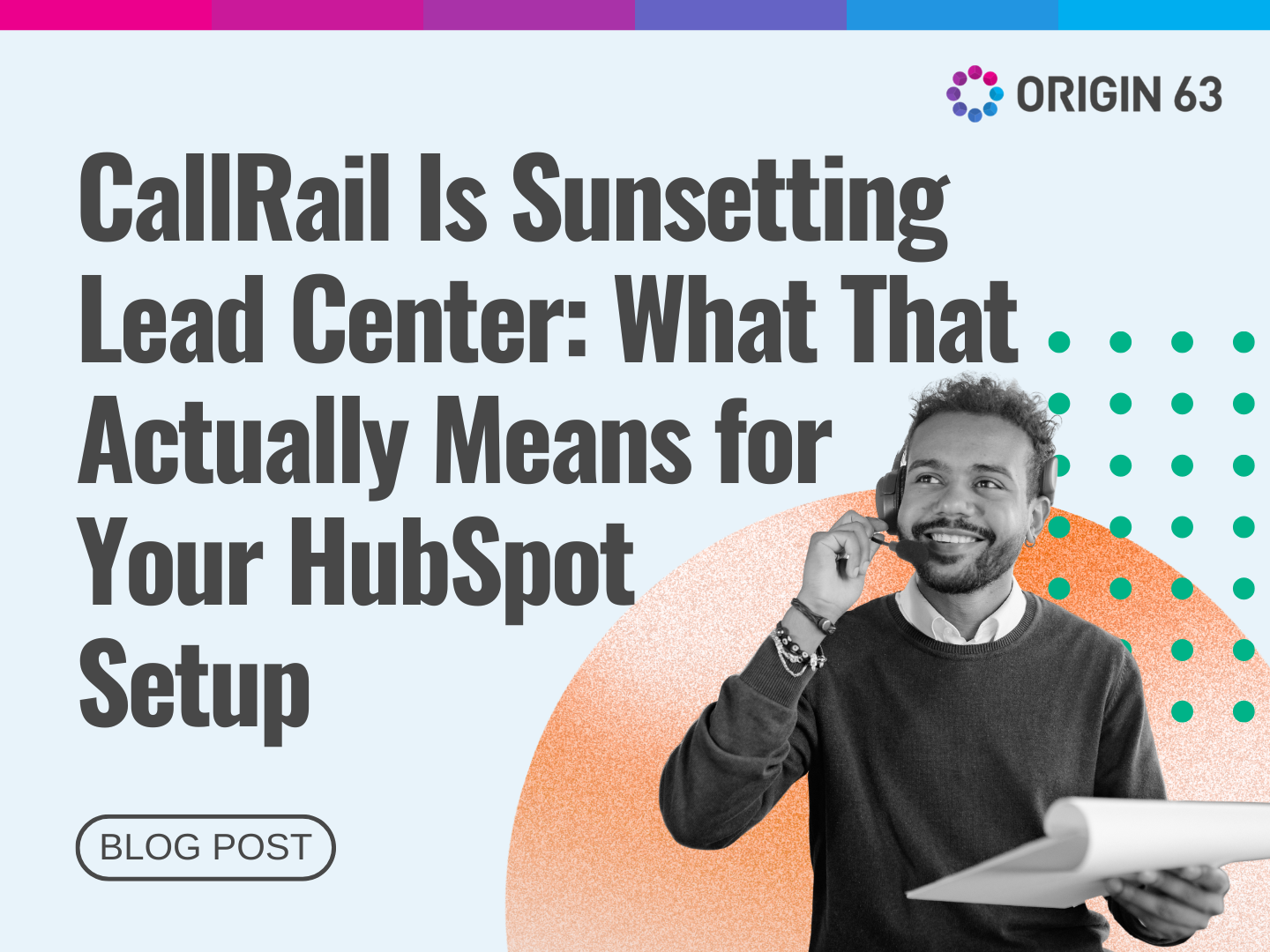
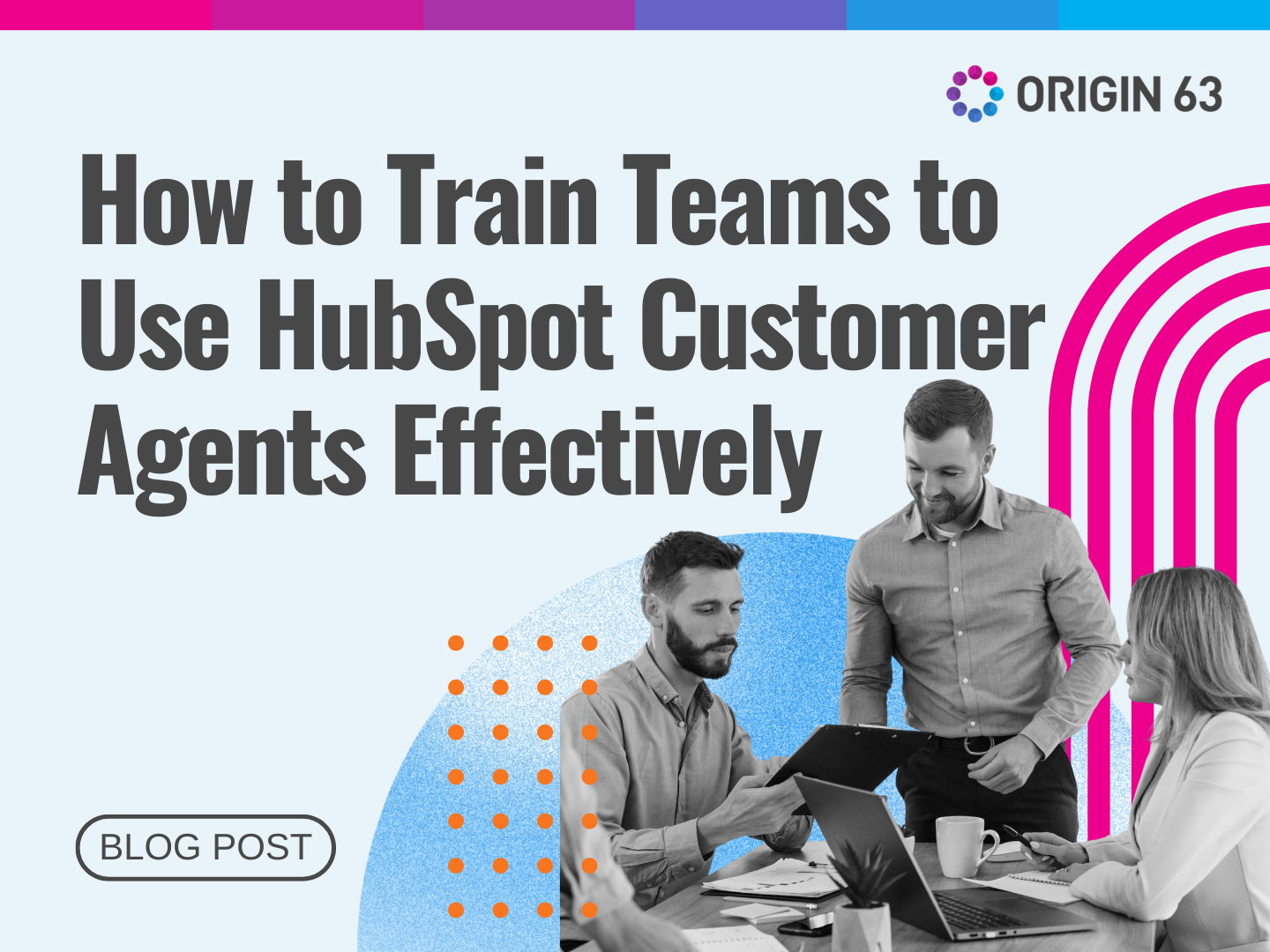
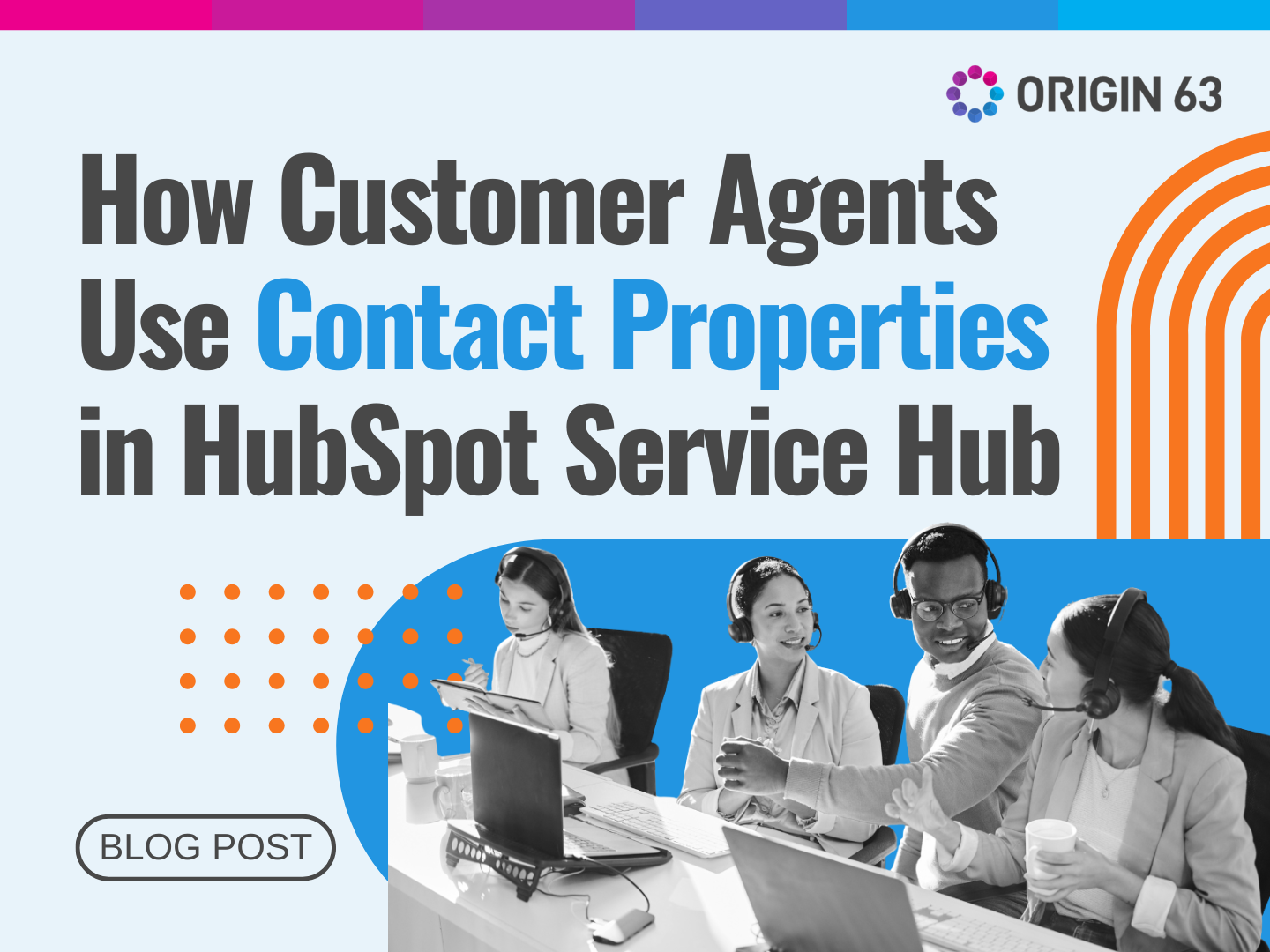
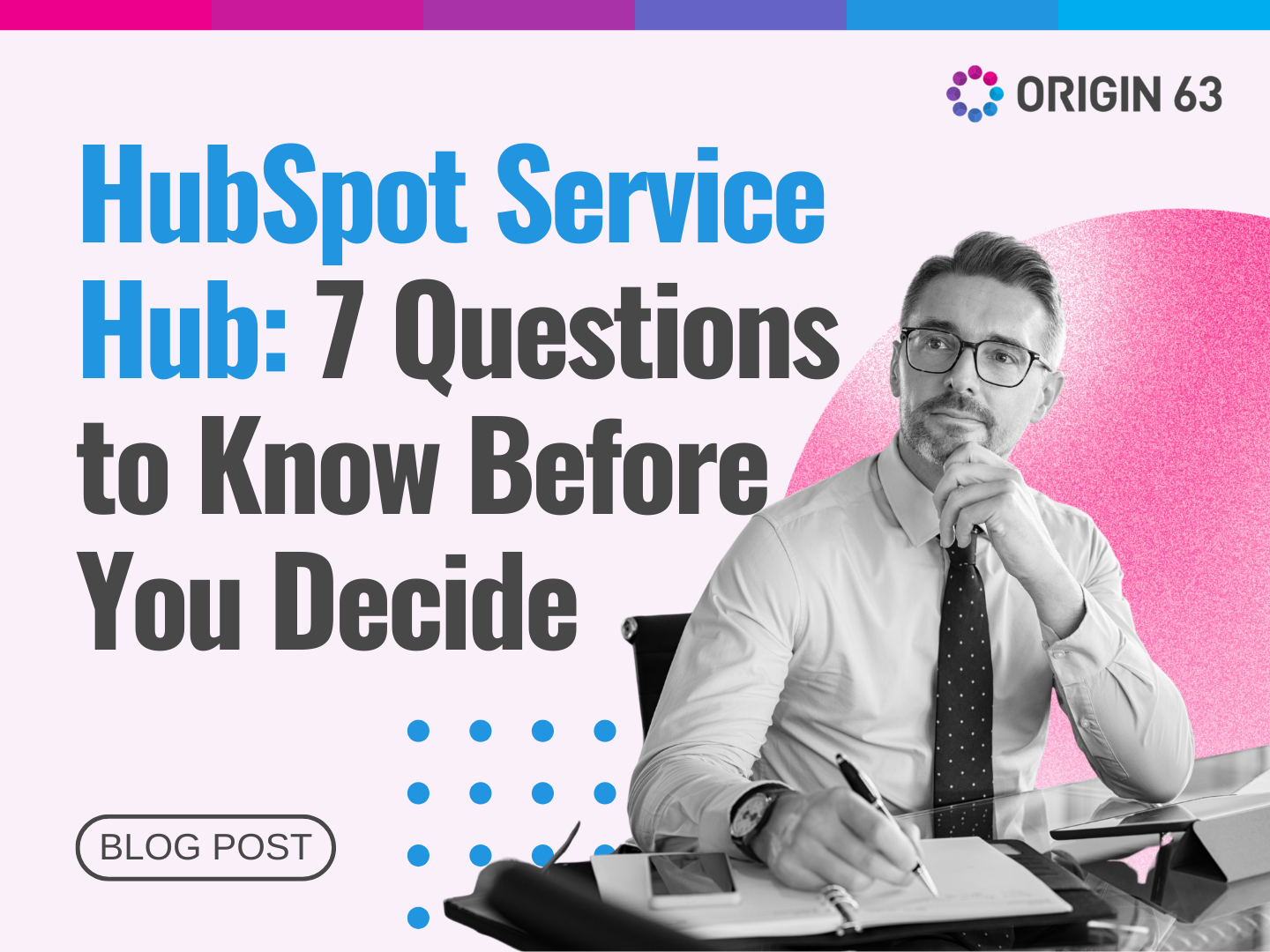
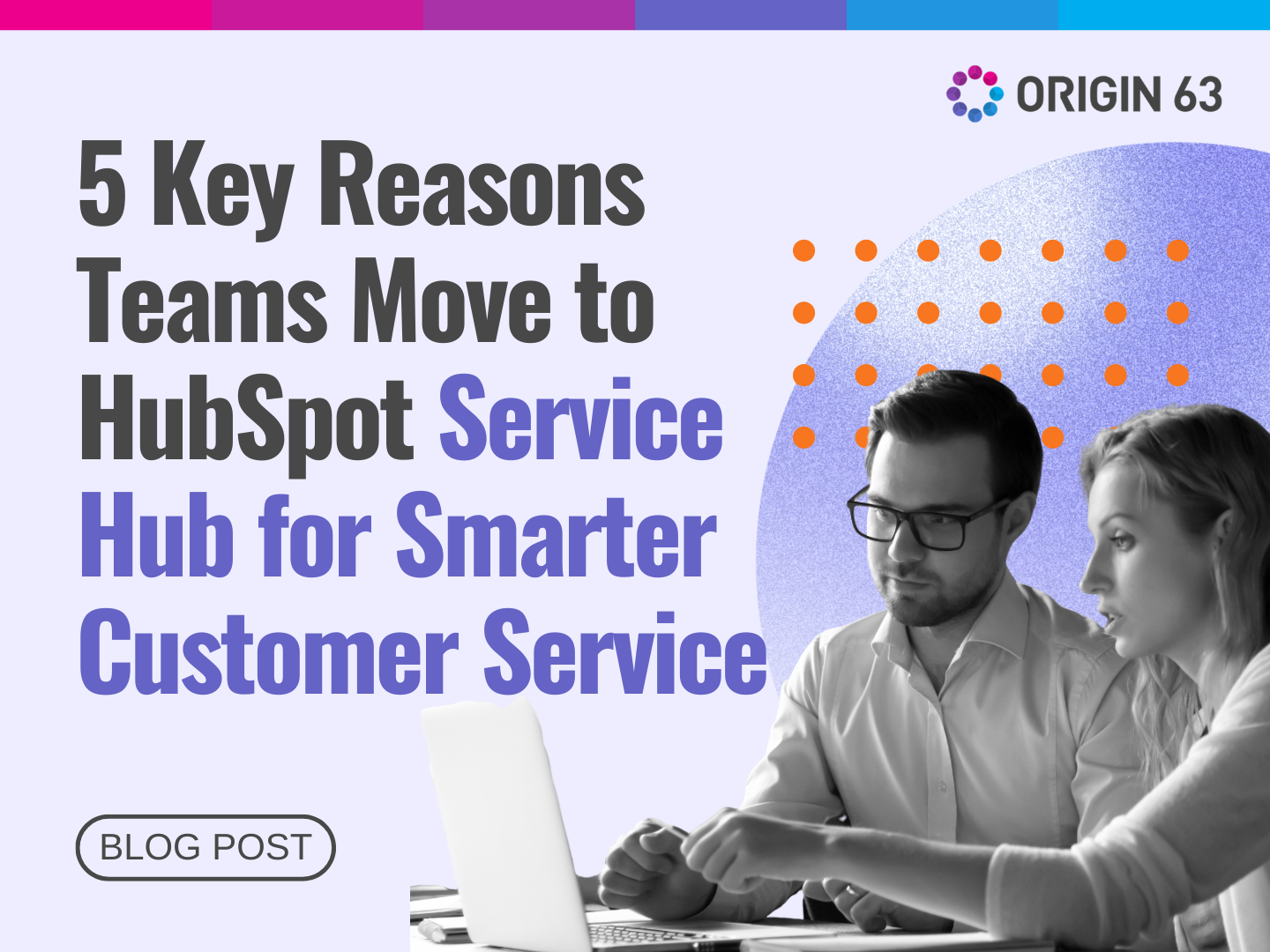






.png?width=90&height=90&name=Arrows%20Partner%20Badge-test%20(1).png)

